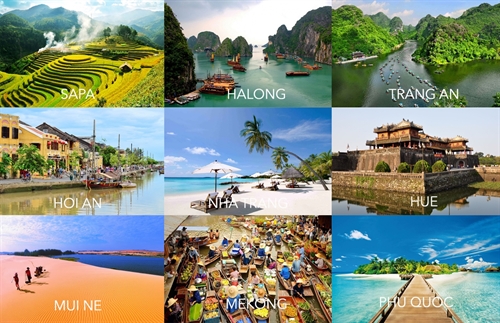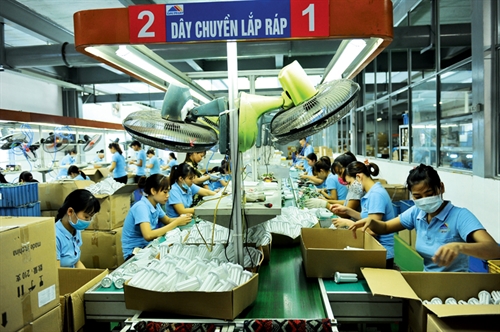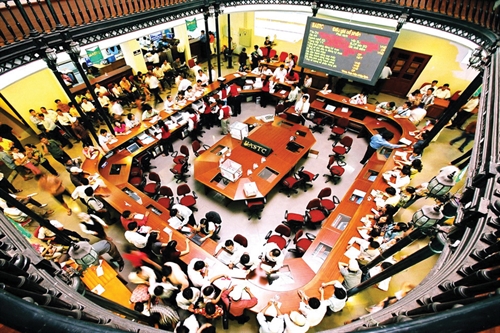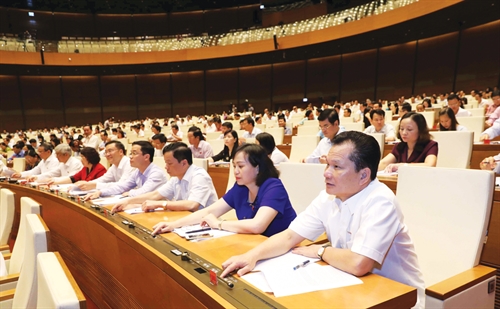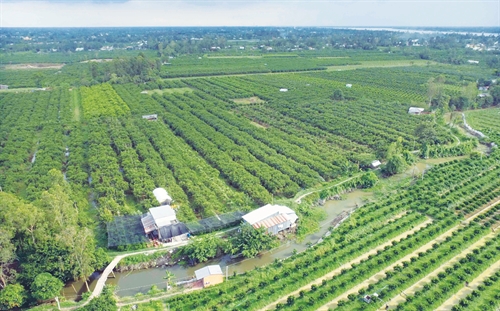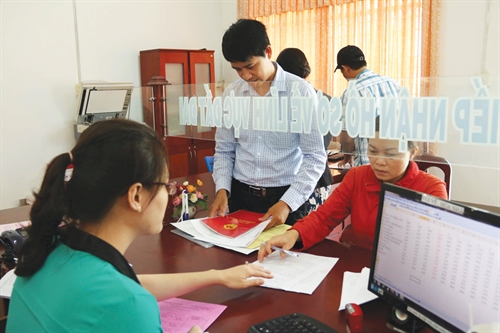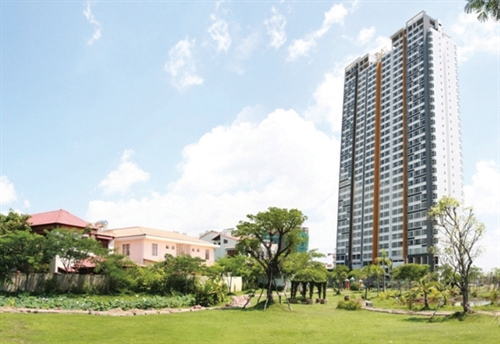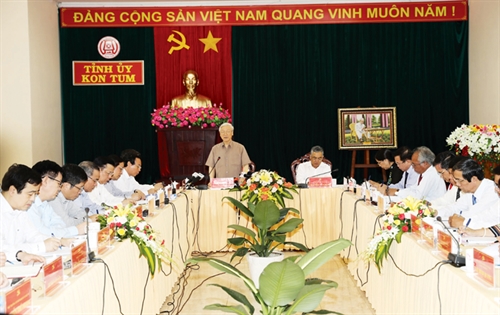Nguyen Hong Hai
Deputy General-Director
Department of Civil-Economic Laws, Ministry of Justice
Background of the 2015 Civil Code’s provisions on court precedents
Politico-legal context
The revision of the 2005 Civil Code[1] as well as and the research into the inclusion of provisions on court precedents in the civil legislation basically were carried out in a favorable politico-legal context. Vietnam’s legislative work has entered a new development period with a focus on recognizing, respecting, protecting and guaranteeing human rights and citizens’ rights and implementing the judicial reform strategy, especially upholding the role of people’s courts in safeguarding justice and exercising the judicial power.[2]
In the nation’s politico-legal life, the development and application of court precedents are not a novel issue. Before 1945 (in the north) or before 1975 (in the south), court precedents were widely studied and applied. During 1950-60, the State of the Democratic Republic of Vietnam already recognized the application of court precedents in a way that in hearing criminal and civil cases, it is necessary to apply the laws of the Democratic Republic of Vietnam, guidelines and policies of the Party and the Government, and precedents of the Supreme Court and other courts. The appellate people’s courts will direct the trial work of lower-level courts based on its precedents.[3] In the subsequent period, the application of precedents in the court system, albeit not officially spelled out, was implicitly mentioned in the Supreme People’s Court’s guidelines on trial work.
By the time of building the 2015 Civil Code (the 2015 Code), court precedents had been mentioned rather specifically in the Party’s documents as well as in various laws. Politburo Resolution 49-NQ/TW of 2005 on the judicial reform strategy clearly states: “The Supreme People’s Court is tasked to summarize trial experiences, guide the consistent application of laws, develop precedents and conduct cassation and re-opening trials.” The 2014 Law on Organization of People’s Courts stipulates that the Justice Council of the Supreme People’s Court has to choose its cassation decisions and standard judgments and rulings of other courts which have become legally effective and develop them into court precedents for the courts to study and apply (Article 22.2 c). The 2014 Law on Bankruptcy also stipulates that the judges carrying out bankruptcy procedures have to refer to previous settlement decisions in similar bankruptcy cases or matters under the guidance of the Supreme People’s Court (Article 9.14).
Requirements on development of a market economy and guarantee of civil rights
Civil relations are so broad, diverse and complicated that the Civil Code and private law system cannot cover all. Particularly for Vietnam, after three decades of transition from a centrally planned economy to a multi-sector commodity one, the country has now to meet new requirements for building a full-fledged market economy. These requirements include diversifying ownership and other property rights, transparentizing the property regime, recognizing private ownership, guaranteeing the rights related to employment, investment and freedom of enterprise, building a stable legal corridor for the formation and development of different types of markets; addressing emerging social issues related to human rights and civil rights, etc.
The above reality has seen the emergence or existence of a myriad of relations, old and new and interwoven, which the legal system can neither foresee nor regulate all, leaving a legal vacuum in the settlement of relevant relations and guarantee of personal and property rights of the people.[4] International and local experiences show that if dealing with this issue merely through promulgating or revising legal provisions, the legal system in general and the Civil Code in particular will always be instable,[5] the legal environment will either be changing all the time or lack transparency, failing to timely guarantee and protect the rights and interests of individuals and legal persons in civil transactions. Therefore, it is an objective requirement for the State to come up with breakthrough solutions related to the courts and sources of applicable law. More specifically, the courts and judges should be allowed to apply, in addition to customary practices and analogous law, court precedents, fundamental principles of civil law and justice to settling cases and matters when there are no applicable legal provisions or there are applicable legal provisions but they are unclear.
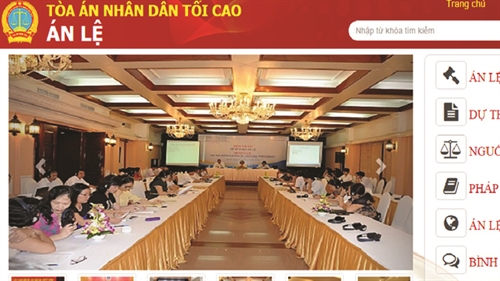 |
| Interface of the Supreme People’s Court website on court precedents__Photo: Internet |
Over the past time, due to the lack of legal provisions on this issue, the courts have faced difficulties in performing their constitutional functions and tasks, even having to refuse to settle some cases and matters or to prolong the settlement on the grounds of lack of legal grounds.[6]
Requirement on consistency, uniformity and stability of the legal system
Vietnam’s private law system consists of multiple “layers” and “levels” of legal documents. To be enforced, promulgated laws have to wait for guiding documents. This has affected the enforceability of laws. In some fields, legal provisions remain unclear or contradictory or overlapping. To deal with this, the State should, in addition to revising or cancelling problematic legal documents, provide the courts with more legal tools, including application of court precedents.
Requirement of international integration
The country has unceasingly expanded its ties with other countries in the world and recorded a lot of achievements in international integration. The country became a member of the World Trade Organization in 2007 and has participated more and more deeply and widely in the Asia-Pacific Economic Cooperation (APEC) Forum and regional organizations. It has also entered into numerous bilateral and multilateral trade agreements. In this process, Vietnam has committed to ensuring the conformity of domestic laws with treaties to which it is a member state, especially in the spheres of trade, services and intellectual property. Moreover, Vietnamese and foreign individuals and legal persons have entered into more and more civil transactions with one another. So, to harmonize the application of legal tools, including court precedents, to the settlement of civil cases and matters is also a requirement of the integration process.
Viewpoints on the design of the 2015 Code’s provisions on court precedents
The first is to concretize the contents and spirit of the Party’s Resolutions 48 and 49 on improvement of the legal system and judicial reform and the 2013 Constitution’s provisions on respect for, protection and guarantee of human and civil rights and assurance of the position and function of people’s courts as well as responsibilities of the Government and people’s courts for protecting these rights.
The second is to concretize the State’s responsibility for ensuring people’s equal access to justice when there are insufficient legal provisions regulating civil relations. Specifically, the courts must be provided with necessary legal tools (customary practices, analogous law, fundamental principles of civil law, court precedents, and justice) to timely settle civil cases and matters.[7]
The third is to distinguish the National Assembly Standing Committee’s constitutional function to interpret laws and the courts’ function to interpret laws in settling civil cases and matters. Accordingly, the courts or judges only interpret laws within the scope of settlement of specific civil cases or matters and, if the interpreted contents in the court’s judgments or rulings become a precedent, this precedent will only apply to similar cases or matters in the future. Meanwhile, the National Assembly Standing Committee’s interpretation of the Constitution, laws and ordinances is general interpretation effective for all entities in the society.
The fourth is that court precedents constitute a secondary source of applicable laws and should be applied in a flexible and non-compulsory manner.
The fifth is to clarify the purpose and scope of provisions on court precedents in the Civil Code and civil procedure law. The Civil Code provides court precedents as an additional source of applicable law, while the civil procedure law regulates the process of selection, publicization and application of court precedents.[8]
The last is to inherit experiences and traditions in Vietnam and learn appropriate experiences of foreign countries[9] on application of precedents to meet practical requirements of the socio-economic development, judicial reform and international integration.
The 2015 Code’s specific provisions on court precedents
Article 6.2 and Article 14.2 and other relevant provisions of the 2015 Code stipulate conditions on court precedents and their application in the exercise and protection of civil rights, basically as follows:
Court precedents may be formed on one of the three following grounds: (i) There is no law, customary practice or analogous law for application; (ii) Existing legal provisions are unclear[10] and there is no customary practice and analogous law for application; and (iii) The court applies customary practices, analogous law, justice or fundamental principles of civil law to the settlement of civil cases and matters.
Court precedents do not restrict civil rights. The Civil Code clearly states: “Civil rights may not be restricted unless it is prescribed by a law in case of necessity for reasons of national defense, national security, social order and safety, social morality and community well-being” (Article 2.2); and “No one may be illegally restricted in or deprived of his/her ownership rights and other rights over property” (Article 163.1).
The contents and application of court precedents must not breach the fundamental principles of civil law (Article 3), i.e., such precedents must not create discrimination among entities for any reason; must not deprive entities of their freedom and voluntariness to make commitments and agreements in the establishment, exercise and termination of civil rights or obligations. They must neither encourage nor recognize dishonesty or non-cooperation in the establishment, exercise and termination of civil rights or obligations; nor infringe upon national interests, public interests or lawful rights and interests of other persons; nor go against the principle that entities must take responsibility for their failure to perform or improper performance of civil obligations.
As mentioned above, court precedents only constitute a secondary source of law, so they would be applied in the following order: Customary practices will apply if the parties have no agreement or there is no applicable or existing legal provisions are unclear[11]; if no customary practices can be applied, the legal provisions regulating similar civil relations will apply; or if there are no such legal provisions, the court or judge may choose fundamental principles of civil law, court precedents or justice to settle civil cases and matters as appropriate so as to best protect the rights and interests of related parties.-
The Ministry of Justice stuck to this view throughout the process of drafting the Civil Code in order to design the most appropriate provisions on application of court precedents in the settlement of civil cases and matters.
